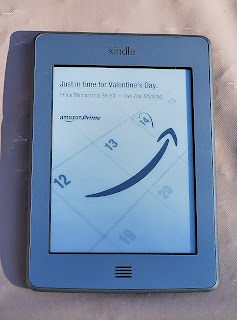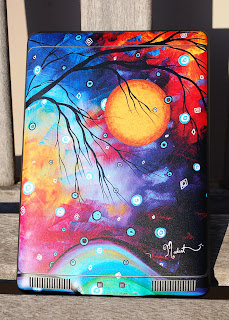How fitting, that the third installment of Wednesday Weird should fall on Leap Year day!Also, happy birthday to all those people who were born on this day and really only get a birthday once every four years.
Onto the weird! Today, we're going to talk about an unsolved death. And not a normal unsolved murder like over at Slam Dunks's blog.
Nope, it needs to be weirder.
Like the Taman Shud Case.
The victim was found dead at 6:30 am, December 1, 1948, under a street lamp at Somerton Beach in Australia, which is why this is also called The Mystery of the Somerton Man. And that's pretty much all we know about this guy.
Of course, there's tons of crap we don't know, which is what makes this case so mysterious and weird.
All the identifying tags on his clothing had been removed and his fingerprints and dental records didn't match anyone. And not just in Australia, either. They looked almost everywhere for the identification of this man.
The autopsy came back with some congestion in his brain that would be consistent with poisoning, except there wasn't a trace of poison found on or in him.
They found a brown suitcase that belonged to the man, but it only held more clothing with the tags ripped off.
But, the best part, in my opinion, was the secret pocket in the man's pants which contained a scrap of paper with the words "Taman Shud" printed on it. The words mean "finished" or "ended".
The text was cut from a book, a collection of poems called The Rubaiyat of Omar Khayyam. Which isn't that crazy, but it turns out this scrap was from a specific, and extremely rare first edition, translation. So, you know, not just from the local library.
In the back of the book, the cops found a handwritten code:
And no, the letters aren't just random scribbles. They actually are some mysterious cipher. Just one that NO ONE has been able to solve. Ever. And people have been trying to solve it for over 60 years.
And that's pretty much it!
So we have an unidentifiable dead man, who may have been poisoned, with secret pockets in his altered clothing that leads to an, as of yet, uncrackable cipher in a rare, first edition, book of poems.
Yeah. Weird.
But it would make a great novel.
.
Onto the weird! Today, we're going to talk about an unsolved death. And not a normal unsolved murder like over at Slam Dunks's blog.
Nope, it needs to be weirder.
Like the Taman Shud Case.
The victim was found dead at 6:30 am, December 1, 1948, under a street lamp at Somerton Beach in Australia, which is why this is also called The Mystery of the Somerton Man. And that's pretty much all we know about this guy.
Of course, there's tons of crap we don't know, which is what makes this case so mysterious and weird.
All the identifying tags on his clothing had been removed and his fingerprints and dental records didn't match anyone. And not just in Australia, either. They looked almost everywhere for the identification of this man.
The autopsy came back with some congestion in his brain that would be consistent with poisoning, except there wasn't a trace of poison found on or in him.
They found a brown suitcase that belonged to the man, but it only held more clothing with the tags ripped off.
But, the best part, in my opinion, was the secret pocket in the man's pants which contained a scrap of paper with the words "Taman Shud" printed on it. The words mean "finished" or "ended".
The text was cut from a book, a collection of poems called The Rubaiyat of Omar Khayyam. Which isn't that crazy, but it turns out this scrap was from a specific, and extremely rare first edition, translation. So, you know, not just from the local library.
In the back of the book, the cops found a handwritten code:
And no, the letters aren't just random scribbles. They actually are some mysterious cipher. Just one that NO ONE has been able to solve. Ever. And people have been trying to solve it for over 60 years.
And that's pretty much it!
So we have an unidentifiable dead man, who may have been poisoned, with secret pockets in his altered clothing that leads to an, as of yet, uncrackable cipher in a rare, first edition, book of poems.
Yeah. Weird.
But it would make a great novel.
.













































